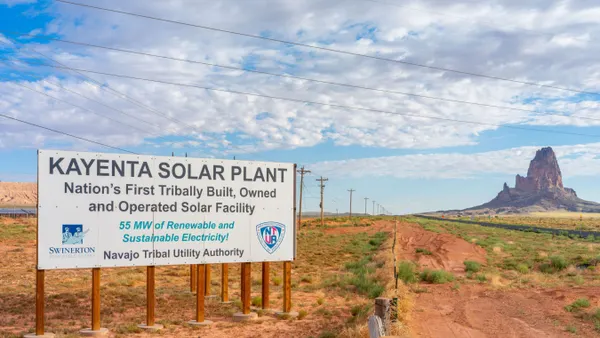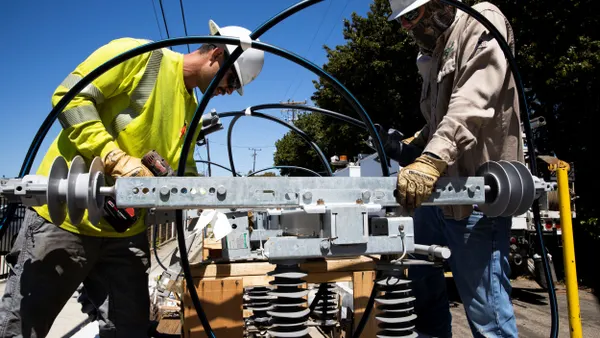Dive Brief:
- Ohio regulators are considering limits on the state's net metering policy, a change which could end a dispute over the price paid for customer-generated power which has wound up in the state's Supreme Court.
- Two weeks ago the Public Utilities Commission of Ohio held an informal conference to hear stakeholder testimony on the issue while the court schedule is in flux.
- Utilities want the payments to customers viewed as subsidies and say other ratepayers should not be required to pay for them, while solar advocates argue subsidies actually go the other way.
Dive Insight:
A challenge to Ohio's net metering rules is sitting in the state's Supreme Court now, but Midwest Energy News reports that regulators earlier this month held an informal meeting to hear opinion on the issue and to consider changes which could ultimately end the court battle.
PUCO made changes to the net metering rules last year which would require utilities to pay the full retail price for a customer's solar power fed back into the grid, possibly raising payments by about 15%, Midwest Energy News reported.
In its brief to the state Supreme Court, AEP Ohio argued that "the proposed language requires that the utility refund the customer based upon the rate that customer is paying. To the extent such rate is higher than the utilities' standard service offer (SSO) rate, such refund is provided at the expense of SSO customers."
"There is no rationale for SSO customers subsidizing shopping customers that choose to participate in net metering," the utility said.
But solar advocates say the subsidies actually go the other way around, and the utilities' ability to resell power with less transmission loss means utilities have the better end of the deal. “Solar producers are actually providing a subsidy for the [utilities] — not the other way around,” Sierra Club's Brian Kunkemoeller told Midwest Energy News.














